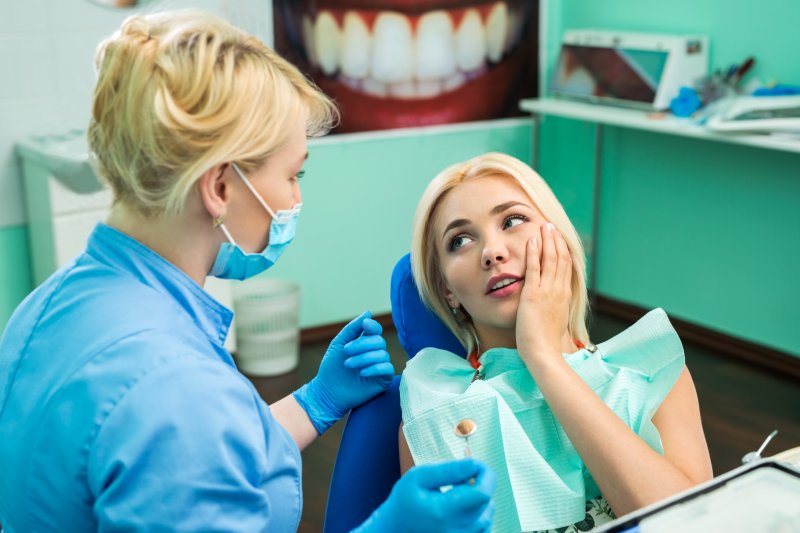
You’re experiencing immense tooth pain and know it’s time to see an emergency dentist; however, you’re hesitant because you do not have dental insurance. While it might seem as if there are no viable solutions, the truth is that it is far better to get the help you need as soon as possible before the problem worsens and results in more extensive, complex, and costly procedures. Even if you’re without insurance, there are other ways you can pay for emergency dental services. Read on to discover how you can get the care you need by choosing an alternative way to pay.
Why Getting Emergency Help is Necessary
When an infection occurs or a serious injury causes you to lose or break a tooth, you don’t want to waste time sitting around hoping it will get better without professional help. Although you do not have dental insurance, the longer you wait to seek timely dental care, the greater your risk for more serious problems that require complex and expensive treatments. While a nagging toothache may be treated using antibiotics, allowing it to continue may eventually lead to a necessary root canal or tooth extraction. The cost will add up over time the longer you wait to see an emergency dentist.
Without Dental Insurance? Available Payment Options
While dental insurance is one of the best investments you can make for improved oral health, there are additional ways to pay for your immediate care, some of which include:
- In-House Membership Plan: Many dentists offer in-house membership or dental plans for uninsured patients. These are often designed so you pay a one-time annual fee and receive access to various services at no additional cost (i.e., dental checkups and cleanings, dental X-rays, etc.) as well as significant discounts.
- Flexible Financing: Eligible individuals can enroll in flexible payment plans through companies like CareCredit or Wells Fargo Financing. Offering low and zero interest financing, it is easy to make manageable monthly installments toward the cost of your emergency dental care.
- Medicare, Medicaid Programs: If you are on Medicare, it’s unlikely it will pay for emergency dentistry; however, you can look for supplemental plans that will help lower your out-of-pocket expenses. If you have Medicaid, some dental benefits are available for those who qualify.
If your dental emergency isn’t considered “urgent,” but you want a dentist to examine the problem area just to be sure, you can always look into various community offerings, such as free dental clinics or even local schools that help aspiring dentists perform particular services.
Not all dental emergencies are avoidable, but it is important to remember that you will do more for your smile if you take precautions to safeguard it from decay and damage. Practicing good oral hygiene at home, eating healthy foods, and wearing a mouthguard are essential. But know that should you experience a serious dental problem, you have options when it comes to paying for necessary treatment.
About the Author
Dr. Gary Rosenfeld completed his doctorate at Columbia University Dental School in 1984 before completing a General Practice Residency at Sea View Hospital on Staten Island. Dr. Rosenfeld is FirstFit certified and can provide dental procedures more efficiently and quickly. He and his team at Island Daily Dental Care understand that dental emergencies can cause much panic, especially if you are uninsured. Fortunately, he and his staff are available to help you identify alternative payment solutions to ensure you get the care you need while staying within your budget. To find out about the various options we offer in-house, visit ourwebsite or call (631) 286-9000.

